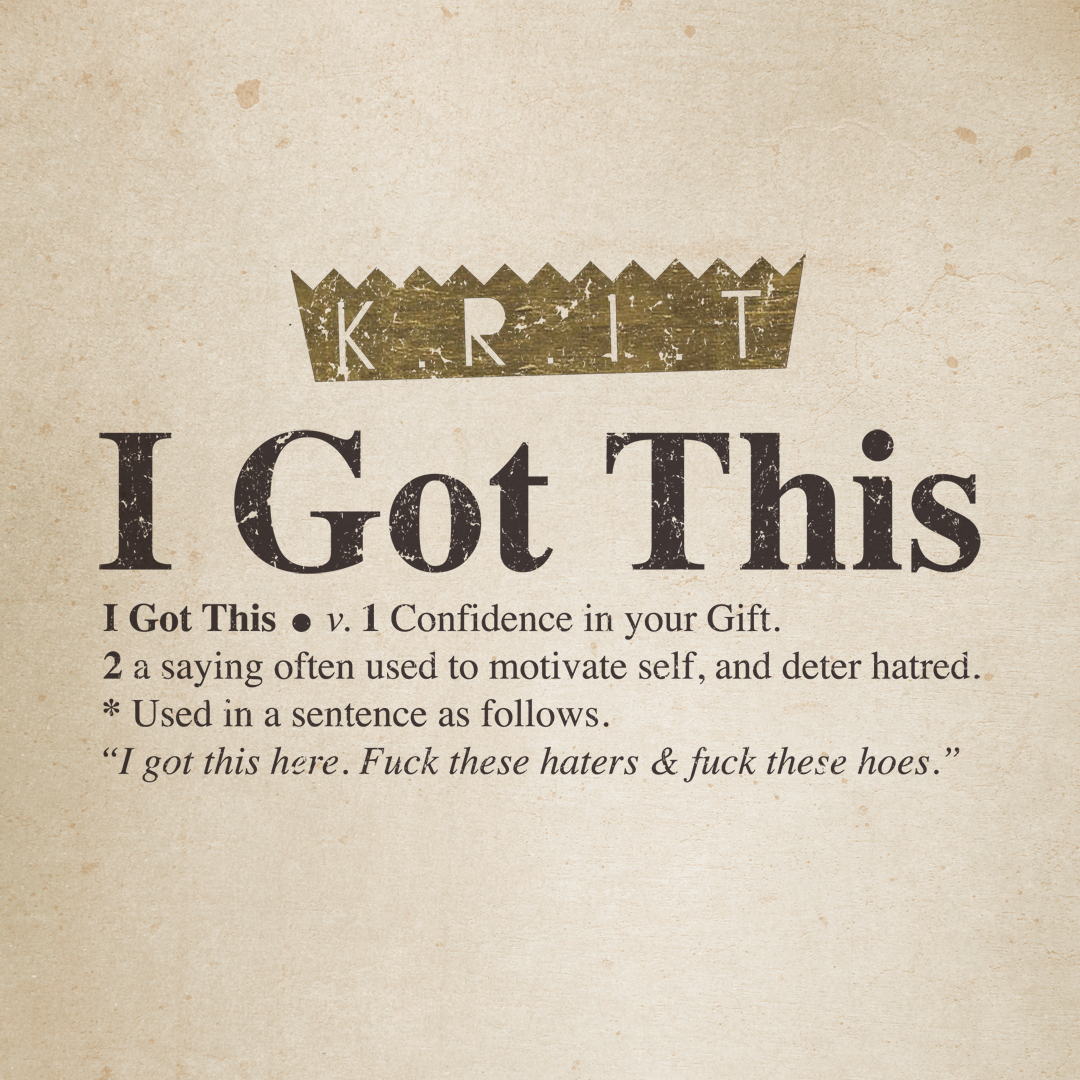

for ignoring the blunt aggression that made his ’90s heroes like Scarface and UGK so strikingly remarkable to begin with.Īlso Read 109 Musicians Predict the 2022 Baseball SeasonĮlsewhere, for “Money on the Floor,” he aspires to the sumptuous lasciviousness of 8 Ball and MJG’s 1996 classic “Space Age Pimpin’,” inviting the two Memphis pioneers (and, yes, perennial 2012 guest star 2 Chainz, too) to join in. It’s a catchy, simple hook improbably extended into a three-minute song, but it’s a deliriously free moment that answers anyone who criticizes K.R.I.T. Two-thirds of the way through this endlessly delayed album, he lets loose “Yeah Dats Me,” shouts again and again, “Yeah dats me! Who dat gettin’ money?” over a bouncing riff. Still, the pleasures here shouldn’t be taken for granted. (Greenstreets Entertainment, an imprint of Nature Sounds, reissued Krit Wuz Here and Return of 4eva on CD last May.) Live from the Underground is billed as his first “real” album, but it faces an audience well aware of his artistic idiosyncrasies. On sequel 4eva N A Day, which hit the Internet in March, he meandered into fogs of sleepy introspection and spacey, occasionally aimless beats. struck that balance perfectly on two justly lionized mixtapes, 2010’s Krit Wuz Here and 2011’s Return of 4eva. He’s what was once called a “conscious rapper,” and that quality has helped him win fans in unlikely places - last week, the ever-so-tasteful NPR hosted an advance stream of his major-label debut, Live from the Underground, a rare event for a rap record.īut it’s a tricky negotiation between immersing yourself in debauchery while putting all those candy cars and sizzurp binges in the proper context.

For all his bellicosity - celebrating “Country Shit” and rubber-band men and eating collard greens - he simply isn’t as amorally opportunistic as, say, Gucci Mane, who probably would rap about selling china white to grade-school kids if it netted him more downloads.įor K.R.I.T., the Mississippi rapper’s love for Southern hip-hop’s pioneers is as much professorial as it is personal, and he tends to package his songs in a sociological context that helpfully canonizes his heroes while explaining their world to cultural tourists. Big K.R.I.T.’s Dirty South classicism is a gift and a curse.


 0 kommentar(er)
0 kommentar(er)
